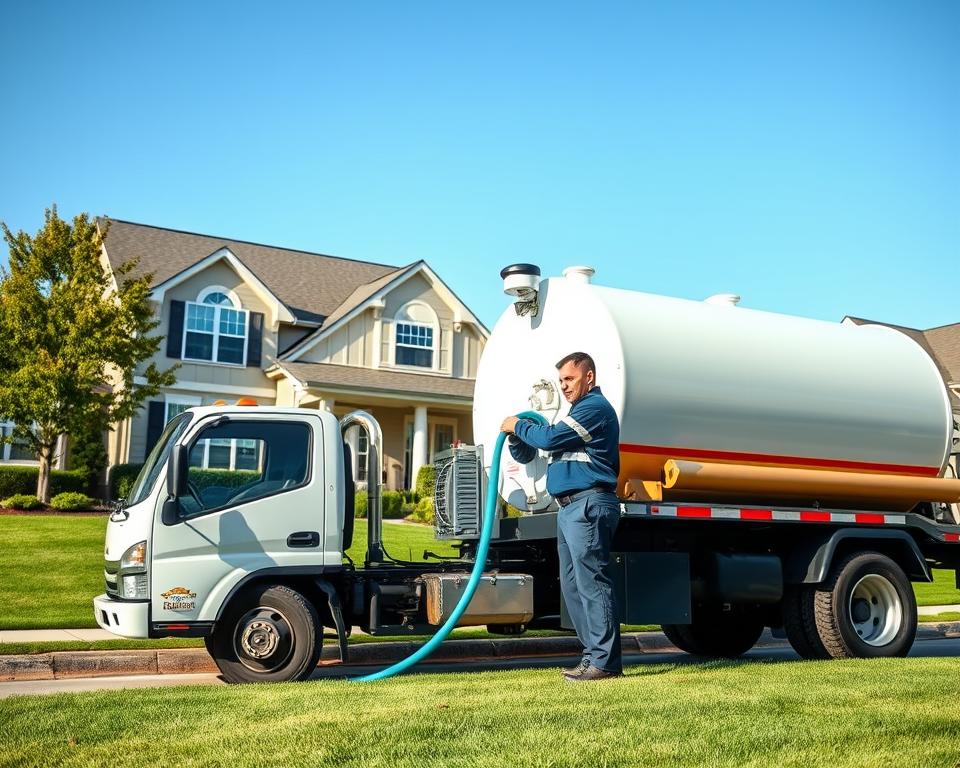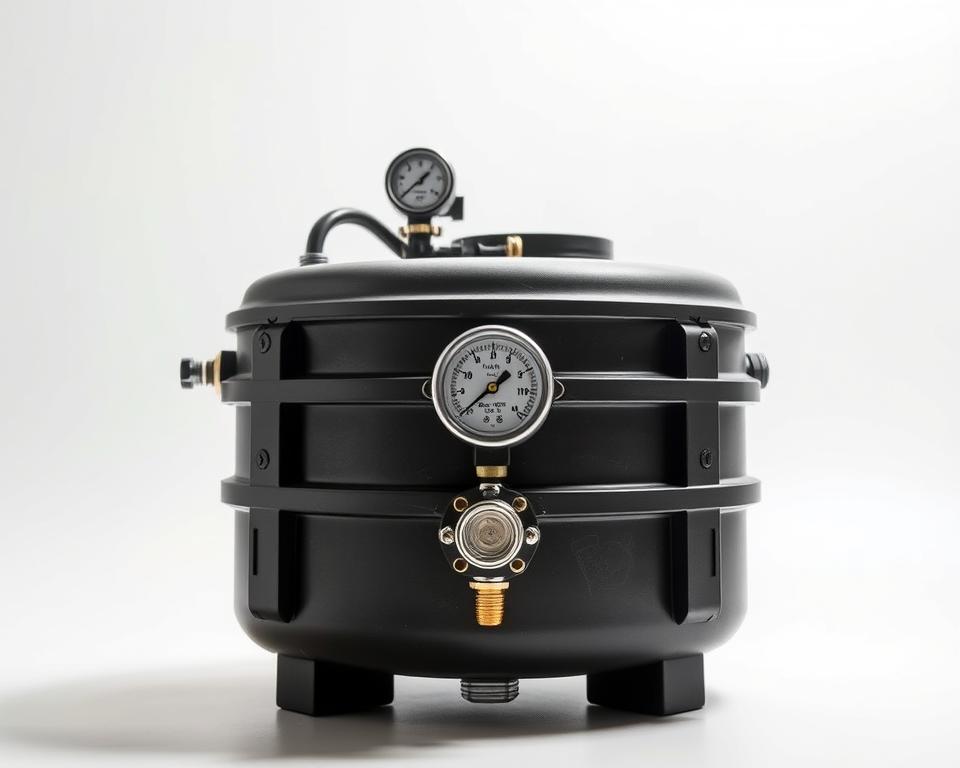Industrial Grease Interceptor Cleaning: Professional Solutions
Ever considered the destiny of waste that passes through your cooking sink? For many, interceptors are overlooked, yet they are crucial in maintaining the efficient functioning of commercial kitchen waste disposal. This article delves into the importance of commercial grease interceptor cleaning. It highlights how expert services can maintain your business’s efficiency and security. By grasping the intricacies of grease interceptor upkeep, you can dodge potential problems resulting from neglect. Let’s explore the critical elements of these mechanisms and see how professional cleaning services can alleviate the stress of time constraints, finances, and unforeseen issues.
Understanding the Significance of Grease Interceptors
Grease traps are essential in handling refuse in restaurants. They capture fats, oils, and grease (FOG) before they can infiltrate the sewage system. This function is critical for maintaining proper drainage and effective waste management. The function of grease interceptors in maintaining sewer system functionality is essential in the restaurant industry.
The Role of Grease Traps in Waste Disposal
Grease traps capture FOG to prevent it from causing plumbing problems. Frequent usage in kitchens leads to FOG accumulation, which can result in clogs and backups. These restaurant grease trap cleaning services near me protect sewer lines and local water sources from contamination through effective FOG removal. Effective maintenance ensures these mechanisms function effectively, supporting waste disposal in commercial environments.
How Grease Traps Prevent Environmental Damage
Grease interceptors prevent hazardous materials from infiltrating sewage systems, thus aiding environmental protection. Without them, too much FOG can cause sewage spills, threatening aquatic ecosystems and community well-being. These traps also lessen bad smells, which can negatively impact a restaurant’s atmosphere and image. Regular maintenance not only keeps them functioning but also underscores a dedication to eco-friendly methods in the food industry.
| Grease Trap Function | Benefits |
|---|---|
| Captures FOG | Prevents clogs in plumbing |
| Reduces sewage overflow | Safeguards nearby water sources |
| Masks odors | Keeps dining experience positive |
| Adherence to rules | Avoids fines and penalties |
Industrial Grease Trap Cleaning: What You Need to Know
Understanding the grease interceptor maintenance procedure is crucial for businesses that generate grease waste. It guarantees productivity and ensures compliance with health regulations. By understanding this process, operators can effectively manage their grease interceptors.
The Maintenance Procedure Detailed
The grease trap cleaning process involves several key steps. First, technicians evacuate all contents from the trap. Then, they meticulously clean the interior to eliminate solidified FOG and solids. This thorough maintenance extends the interceptor’s lifespan and improves its functionality.
Signs Your Grease Trap Needs Cleaning
Identifying when a grease interceptor needs cleaning can avoid potential issues. Be alert to these indicators:
- Slow drainage from basins, often due to blockages.
- Unpleasant smells from the unit, indicating accumulation.
- Noticeable buildup of FOG around the trap.
Using grease trap inspection services offers an early look at these problems. This allows for prompt measures, saving time and costs on emergency repairs.
| Sign of Need for Cleaning | Possible Effect | Recommended Action |
|---|---|---|
| Reduced flow | Increased likelihood of backups | Arrange for maintenance |
| Unpleasant smells | Health and safety concerns | Seek a detailed assessment |
| Visible grease buildup | Possible code violations | Perform immediate cleaning |
Advantages of Consistent Grease Interceptor Upkeep
Consistent maintenance of grease traps is essential for the efficiency and sustainability of waste management mechanisms in restaurant settings. This procedure ensures businesses can save costs and adhere to legal requirements. It’s essential for restaurant operators to understand these advantages to ensure proper grease management.
Financial Benefits of Proactive Maintenance
Investing in grease interceptor upkeep leads to notable financial benefits for restaurant settings. Consistent cleaning and assessments avoid expensive repairs due to failures. If interceptors malfunction or fail, businesses may encounter fines of significant sums daily.
By focusing on preventative care, businesses can handle cost-effective grease disposal efficiently. This strategy helps avoiding these substantial penalties.
Adherence to Regional Standards
All restaurants must follow local compliance regulations on waste disposal. Consistent upkeep of grease interceptors is essential to complying with these standards. Effective upkeep not only avoids fines but also promotes environmental sustainability by reducing the possibility of FOG leaks.
Working with a trusted grease trap pumping service ensures adherence. It also promotes a safe operational environment.
| Benefit | Details |
|---|---|
| Financial Benefits | Reduces emergency repair costs and lowers penalties due to grease overflow. |
| Adherence | Ensures adherence to local regulations, avoiding legal issues. |
| Operational Efficiency | Maintains smooth operation of FOG management mechanisms, enhancing overall business performance. |
| Environmental Responsibility | Reduces the possibility of eco harm from FOG leaks, promoting eco-friendly practices. |
Grease Interceptor Maintenance Made Easy
Keeping your grease trap in top shape is essential for seamless kitchen operations and complying with rules. A regular routine for inspections and maintenance lowers the risk of costly fixes and boosts efficiency. Regular upkeep not only safeguards the environment but also prolongs the durability of your grease trap.
Planning Regular Maintenance
Establishing a schedule for grease trap assessments is critical for optimal performance. The interval depends on your restaurant’s FOG output, possibly requiring every month or every quarter checks. Regular monitoring prevents clogs and guarantees effective FOG disposal.
How to Choose the Right Service Provider
When choosing a FOG management partner, look at their experience, client support, and their capacity to tailor services for you. A experienced provider will comply with local regulations and use advanced cleaning methods. Choosing a reliable partner like Grease Trap Pumping Service ensures reliable maintenance support, allowing you to concentrate on your business.



